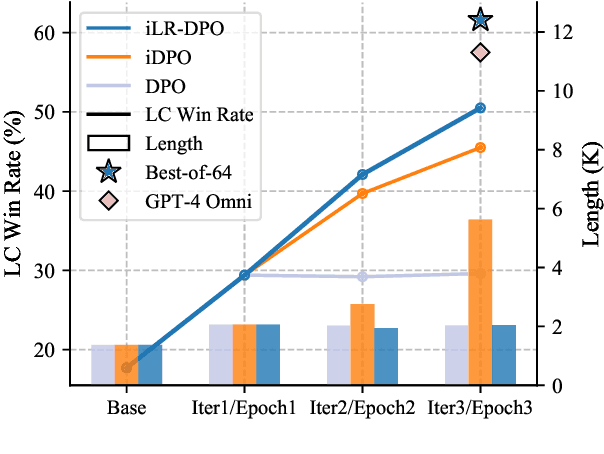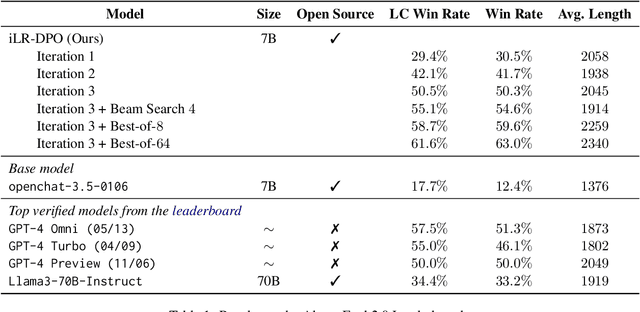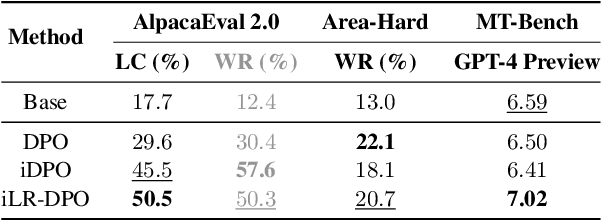Iterative Length-Regularized Direct Preference Optimization: A Case Study on Improving 7B Language Models to GPT-4 Level
Paper and Code
Jun 17, 2024



Direct Preference Optimization (DPO), a standard method for aligning language models with human preferences, is traditionally applied to offline preferences. Recent studies show that DPO benefits from iterative training with online preferences labeled by a trained reward model. In this work, we identify a pitfall of vanilla iterative DPO - improved response quality can lead to increased verbosity. To address this, we introduce iterative length-regularized DPO (iLR-DPO) to penalize response length. Our empirical results show that iLR-DPO can enhance a 7B model to perform on par with GPT-4 without increasing verbosity. Specifically, our 7B model achieves a $50.5\%$ length-controlled win rate against $\texttt{GPT-4 Preview}$ on AlpacaEval 2.0, and excels across standard benchmarks including MT-Bench, Arena-Hard and OpenLLM Leaderboard. These results demonstrate the effectiveness of iterative DPO in aligning language models with human feedback.
 Add to Chrome
Add to Chrome Add to Firefox
Add to Firefox Add to Edge
Add to Edge